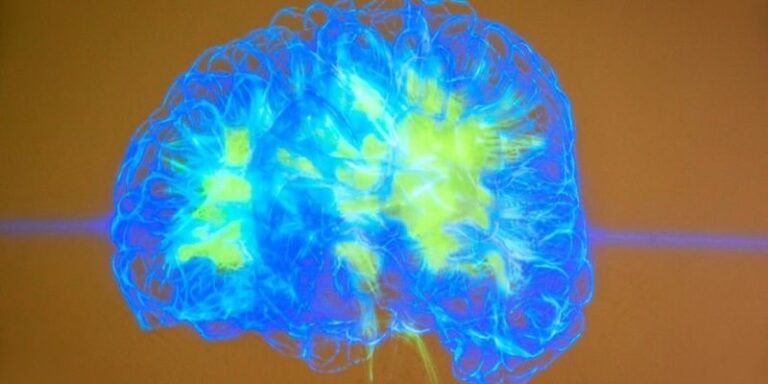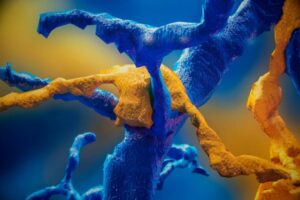Artificial Intelligence Gets an Upgrade?
Scientists plan to use human brain cells to make AI smarter.
By: Kirsten Brooker | April 3, 2023 | 620 Words

(Photo by: Sergi Reboredo/VW Pics/Universal Images Group via Getty Images)
Artificial Intelligence (AI) is making big waves in modern technology. However, many people do not realize just how common AI is in their everyday lives. Everything from navigation and facial detection to autocorrect and e-payments all use AI. Scientists consistently work on new ways to improve this technology. The latest idea is to use human brain cells to power biocomputers. The ability to hold more data would allow AI to become much more intelligent and capable of performing more tasks. How would this technology work, and is it ethical and safe?
Organoid Intelligence: The New and Improved Artificial Intelligence?
AI is the machine version of human intelligence. Large amounts of data get uploaded into a supercomputer that stores and shares the data. Search engines such as Google, virtual customer service agents, speech recognition, and computer vision are a few of the most common examples of AI.

(Photo by: Sergi Reboredo/VW Pics/Universal Images Group via Getty Images)
But Artificial Intelligence is in the running for an upgrade. A team of scientists from Cortical Labs is utilizing the human brain’s capabilities by growing brain cells from human skin cells and using them to power the latest technology: Organoid Intelligence, or OI. This particular group of researchers is known for growing a dish of brain cells and teaching it how to play the old arcade game, Pong.
Lina Smirnova, a Johns Hopkins University (JHU) researcher, stated: “The vision of OI [organoid intelligence] is to use the power of the biological system to advance the field of live sciences, bioengineering, and computer science.”
Researchers are hopeful to see OI working collaboratively with current Artificial Intelligence technology like ChatGPT and Bing. The amount of data stored in OI surpasses that of any AI-supported technology. Thomas Hartung, an environmental health sciences professor at JHU, highlighted a couple of areas where OI would be beneficial in our world, explaining that “we could compare memory formation in organoids derived from healthy people and from Alzheimer’s patients and try to repair relative deficits. We could also use OI to test whether certain substances, such as pesticides, cause memory or learning problems.”
How It Works
Hartung, has studied organoids for years. Organoids are three-dimensional piles of brain tissue grown and tested by lab workers. Once ready, the organoids are used to power biocomputers that operate the OI system. An organoid’s uncanny ability to grow and learn intrigues analysts eager to apply this technology to the already intelligent AI system.
“We are at a moment in time, where the technologies to achieve actual biocomputing have matured,” Hartung said. “The hope is that some of the remarkable functionalities of the human brain can be realized as OI, such as its ability to take fast decisions based on incomplete and contradictive information (intuitive thinking).”
It’s a Question of Ethics
The ethics of AI and OI is an ongoing topic. Experts must gain a complete understanding of how human-like the machines are or can become. One concern is how intelligent the brain cells can become and whether the robots can feel pain and sadness or become conscious and self-aware.
Hartung responded to these concerns: “A key part of our vision is to develop OI in an ethical and socially responsible manner. For this reason, we have partnered with ethicists from the very beginning to establish an ’embedded ethics’ approach.” In addition, he said, “All ethical issues will be continuously assessed by teams made up of scientists, ethicists, and the public, as the research evolves.”
The progression of technology is moving at a fantastic rate. As a result, the capabilities of these machines are seemingly endless.
















